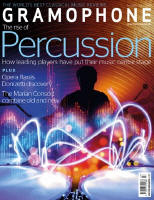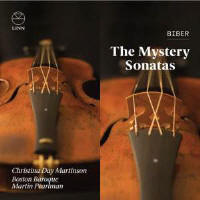Texte paru dans: / Appeared in: |
|
|
Outil de traduction (Très approximatif) |
|
|
Reviewer:
Fabrice Fitch It’s 18 months since I reviewed all the available recordings of this wonderful cycle (Collection, 1/17), an experience that has stayed with me since. This new offering steers a middle course between a cornucopia of instrumental extravagance on the continuo (Letzbor or the more focused Tur Bonet) and the purists, who – arguably correctly – forego the bowed string bass altogether (Manze, Lotter). Boston Baroque’s continuo group has a keyboardist (organ and harpsichord), a plucked string player (theorbo and guitar) and a cello. This last is the greater surprise, and one of the set’s disappointments: a viol is generally lighter on its feet and its strings resonate more easily, so that the player doesn’t have to work as hard to keep things moving. The interplay between the soloist and the continuo group is key to carrying this cycle convincingly but here the continuo is earthbound and gives Christina Day Martinson little energy off which to feed. The cycle begins well, with welcome ornaments and interpretative tweaks in the repeats of dance movements, but after a while these seem to tail off, so that one misses them all the more. Day Martinson’s approach is deliberate and careful but missing the variety of tone-colour and phrasing that the programmatic element calls out for; and where Biber’s technical demands come thick and fast (try the cross-string polyphonies, for example at the start of ‘The Nativity’, or the saltando/legato of the very last variation of ‘The Coronation of the Virgin’), things are not as secure as one might wish. At just over two hours, this is one of the longer performances on disc of the past few years, and although this isn’t unreasonable given the soloist’s solid tone, in the passacaglias and chaconnes the sense of line struggles to transcend the individual units (try, however, the welcome speeding-up near the end of ‘The Presentation in the Temple’). But just as a friend of mine holds that you judge an Indian restaurant by its onion bhajis, so do performances of this cycle stand or fall by the closing solo Passacaglia. Here, the distraction is straightforwardly technical: the violin’s open third string is nicked so often that the producer ought surely to have allowed retakes. |
|




